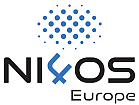Subject: autism, biomedical, treatment
Year: 2006
Type: Proceeding article
Title: Biomedicinski tretman autizma
Author: Trajkovski, Vladimir
Abstract: Autism and allied autistic spectrum disorders (ASD) present myriad behavioral, clinical, and biochemical abnormalities. No one method alone is usually effective in treating autism, professionals and families have found that a combination of treatments may be effective in treating symptoms and behaviors that make it hard for individuals with autism to function. Parental participation, advanced testing protocols, and eclectic treatment strategies have driven progress toward cure. Behavioral modification and structured education are beneficial but insufficient. Dietary restrictions, including removal of milk and other casein dairy products, wheat and other gluten sources, sugar, chocolate, preservatives, and food coloring are beneficial and prerequisite to benefit from other interventions. Individualized IgG or IgE testing can identify other troublesome foods but not non-immune mediated food sensitivities. Gastrointestinal improvement rests on controlling Candida and other parasites, and using probiotic bacteria and nutrients to correct dysbiosis and decrease gut permeability. Detoxification of mercury and other heavy metals by DMSA/DMPS chelation can have marked benefit. Many nutrient supplements are beneficial and well tolerated, including dimethylglycine (DMG) and a combination of pyridoxine (vitamin B6) and magnesium, both of which benefit roughly half of ASD cases. Vitamins A, B6, B12, C, and folic acid; the minerals calcium and zinc; cod liver oil; and digestive enzymes, all offer benefit. Secretin, a triggering factor for digestion, is presently under investigation. Immune therapies (pentoxifyllin, intravenous immunoglobulin, transfer factor, and colostrum) benefit selected cases. Long-chain omega-3 fatty acids offer great promise. Current pharmaceuticals fail to benefit the primary symptoms and can have marked adverse effects. Individualized, indepth clinical and laboratory assessments and integrative parent-physician-scientist cooperation are the keys to successful ASD management. Not all researchers and experts agree about whether these therapies are effective or scientifically valid.
Publisher:
Relation: Rehabilitacija-stanje i perspektive djece s teškoćama u razvoju i osobe s invaliditetom
Identifier: oai:repository.ukim.mk:20.500.12188/848
Identifier: Trajkovski V. Biomedicinski tretman autizma. Zbornik radova Međunarodni znanstveni i stručni skup: "Rehabilitacija - stanje i perspektive djece s teškoćama u razvoju i osobe s invaliditetom. Rijeka, 12-13 listopada, 2006; 48-55
Identifier: http://hdl.handle.net/20.500.12188/848


